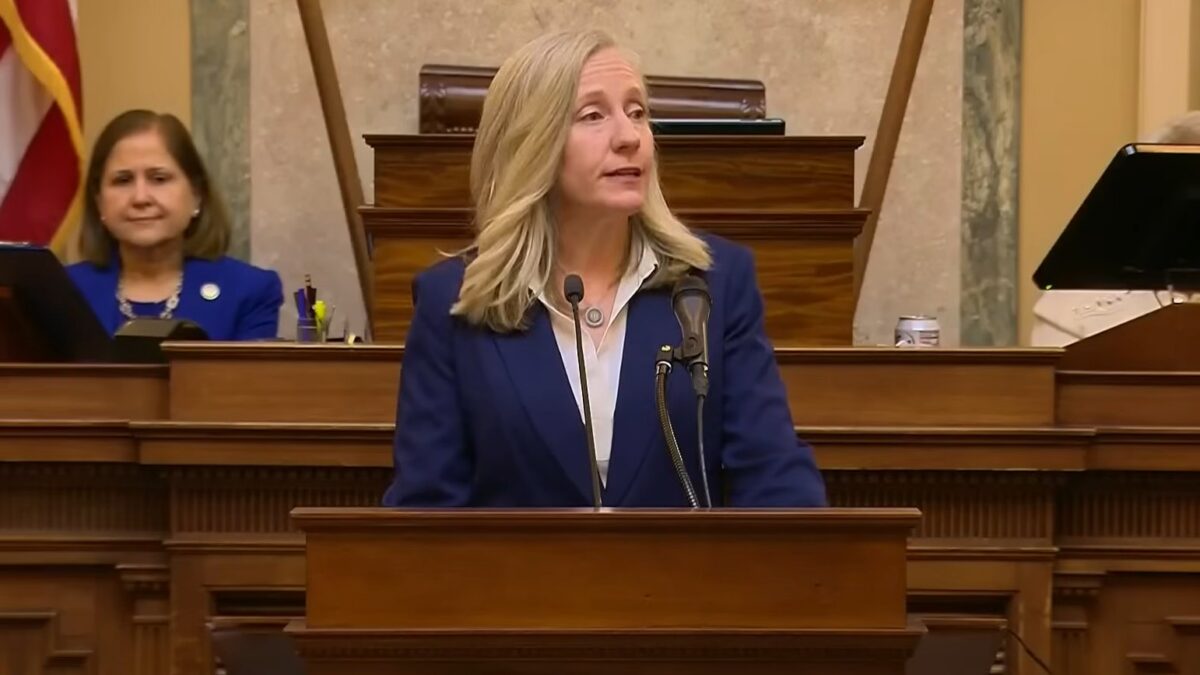
My article last week regarding disability groups’ political and policy views prompted some comments and criticisms on Twitter. Rather than trying to explain detailed subjects in bursts of 140-character tweets, I considered it best to compile them into a longer-form article.
To summarize my prior work: Obamacare provides states with a greater incentive to expand Medicaid to able-bodied adults than to cover services for individuals with disabilities. States receive a 95 percent match this year (declining to 90 percent in 2020 and all future years) to cover the able-bodied, but a match ranging from 50-75 percent to cover individuals with disabilities, while more than half a million are on waiting lists to receive home or attendant care.
My article raised this disparity—essentially discrimination against individuals with disabilities—pointing out that the major disability advocacy consortium failed to object to it when Obamacare passed, and questioned why the groups were so silent on this issue then, but so vocal in their opposition to Republican legislative proposals to slow the growth of Medicaid spending now.
Many of the responses I discuss in greater detail below attempt to obscure two separate and distinct issues: The question of the amount of funding for programs versus the priorities within those programs.
As a conservative, I’m likely to disagree with liberals on the ideal size of many government programs, but I thought I would at least agree with them that individuals with disabilities should receive precedence within those programs. However, Obamacare actually tilted Medicaid’s preference away from individuals with disabilities, which makes disability groups’ silence on that front surprising.
There Is No Correlation Between Waiting Lists and Medicaid Expansion
finally, there is no correlation between HCBS waiting list and expansion… NONE.
— Sam Crane, turbo-boosted (@Samanticka) June 10, 2017
The timeliest rebuttal comes from a story on a long-term care report none other than AARP released yesterday. Susan Reinhard with that organization—no right-wing conservative group, by any stretch—said that
Many states have struggled to expand home- and community-based options for Medicaid enrollees needing long-term care because that is an optional benefit. Nursing homes are mandatory under federal law. While states focus on Medicaid coverage for children and families — as well as non-disabled adults covered by the Medicaid expansion under the Affordable Care Act — adults with disabilities have received less attention. ‘Long-term care is a stepchild of the program and not a top focus for states,’ she said. (emphasis mine.)
That statement notwithstanding, several people cited two different analyses that compare states’ decisions on expansion to the able-bodied and their waiting lists for home-based care for individuals with disabilities. But each of those “studies” (based on only one year of data available) take an overly simplistic approach, and therefore don’t get at the core issue of the extent to which the skewed incentives Obamacare created have encouraged states to prioritize the able-bodied over those with disabilities.
A state’s decision to expand Medicaid to the able-bodied, or reduce its waiting lists for individuals with disabilities, depends on myriad factors. For instance:
- A wealthy state with a greater tax base would have more resources both to expand Medicaid to the able-bodied and to reduce its waiting list of individuals with disabilities, while a poorer state with a smaller tax base might not have resources to do either;
- A state with “bad” demographics (e.g., an older and sicker population), or higher costs for health and personal care services, might have more difficulty reducing their Medicaid waiting lists;
- A state may face other fiscal pressures—controversy over school funding, a natural disaster, a pension crisis—that could affect overall Medicaid spending.
Numerous variables affect states’ budget choices, and therefore their Medicaid waiting lists. The “studies” controlled for exactly none of them. They examined whether a state expanded Medicaid and the total number of people on a state’s waiting list, and that’s it.
It’s not entirely surprising that wealthy states like California (2015 median income: $64,500) could both reduce disability waiting lists and expand Medicaid to the able-bodied, while poorer states like Alabama (2015 median income: $44,765) could afford neither, seeing their waiting lists grow while not expanding Medicaid. In general, non-expansion states are poorer than expansion states; the latter therefore have more resources to spend on Medicaid.
Moreover, under Obamacare, all states receive the same (higher) federal match to cover able-bodied adults—another change in policy (prior to Obamacare, all Medicaid match rates were based on states’ relative income) skewing the balance in favor of wealthier expansion states. Yet, as noted above, the analyses claiming no correlation between expansion and Medicaid waiting lists didn’t even attempt to control for these variables—or any other.
Therefore, in the absence of a quality study examining the issue, I’ll go with something far simpler: Common sense. If you’re a state that wants to spend more money on Medicaid, and you can do something (i.e., cover the able-bodied) that gives you 95 cents on the dollar, or something (i.e., reduce waiting lists for individuals with disabilities) that gives you 50 cents on the dollar, which are you going to do first?
I thought so. The incentives in Obamacare strongly favor coverage of the able-bodied over coverage for individuals with disabilities. And no number of crude analyses attempting to provide retroactive justification for this bad policy can hide that fact.
Waiting Lists Are Worst In Two Non-Expansion States
There's also this by @JudyCBPP showing that waiting lists for HCBS are worst in 2 non expansion states :Texas& Florida. How do you explain?
— Dan S #HealthcareVoter (@Dsquared75) June 10, 2017
This comment reinforces the crudeness of the analysis being cited. All else being equal, as the second- and third-largest states in the Union, Texas and Florida would be expected to have a larger number of people on its waiting lists for home- and community-based services than a smaller expansion state like Connecticut. All else isn’t equal, of course, but did the analysts attempt to control for these kinds of factors? Nope. They examined raw waiting list numbers, rather than waiting lists as a percentage of the population.
But just suppose for a second that the commenters above are correct, and there is no correlation between expansion to the able-bodied and waiting lists for home-based care. That means that the greater incentives Obamacare gives to states to cover the able-bodied—and while the advocacy community might not want to admit it, Obamacare clearly does give states greater incentives to cover the able-bodied—didn’t affect state behavior, or decisions about whether to reduce disability waiting lists at all.
In that case, why has the disability community expressed such outrage about the impact of per capita caps or block grants on Medicaid beneficiaries with disabilities? If states make decisions without considering federal incentives—the point of the claims that there is no correlation between expanding Medicaid to the able-bodied and longer waiting lists for individuals with disabilities—then why also claim that “cost-shifting to states will force massive cuts in Medicaid services?” Why wouldn’t states shift around resources to protect individuals with disabilities—what the disability community claims that states did to reduce waiting lists even while expanding Medicaid under Obamacare?
There are really only two credible possibilities:
- States are affected by incentives, therefore Obamacare—by giving states a higher match to cover the able-bodied—encouraged discrimination against individuals with disabilities; or
- States are not affected by incentives, and therefore the per capita caps—which generate a comparatively small amount of savings in the House repeal bill—will have little impact, because states will re-prioritize their budgets to protect the most vulnerable.
It’s therefore worth asking why some appear to be trying to argue both sides of this question, and doing so in a way that neatly lines up with partisan lines—trying to ignore Obamacare’s skewed incentives, while roundly castigating the House Republican bill for incentives that will “force massive cuts in Medicaid.”
Republicans’ Bill Would Cut Program Helping People Live at Home
The AHCA would eliminate the Community First Choice program which gives people the option to live at home– saving money to the state.
— Dr. Emma Sandoe (@emma_sandoe) June 8, 2017
This is a true statement: Section 111(2) of the American Health Care Act, House Republicans’ “repeal-and-replace” bill, would sunset the enhanced match for the Community First Choice program on January 1, 2020. That option provides states with a 6 percent increase in their federal match for home- and community-based services, including to individuals with disabilities. But here again, raising this issue demonstrates the inherent disconnect between the incentives being offered to states, and the disability community’s responses to those incentives.
- Obamacare provides states with a match ranging from 20-45 percentage points higher to cover the able-bodied than individuals with disabilities: “No correlation between expansion and waiting lists for individuals with disabilities!”
- Obamacare provides states with a 6 percentage point increase for home-based services: A “huge change to improve HCBS [home and community-based services] care.”
- The Republican alternative to Obamacare would reduce Medicaid spending for traditional (i.e., non-expansion) populations by a comparatively small amount: “Massive cuts to Medicaid services.”
Isn’t there a slight contradiction in these responses—both in their tone and in their logic? And isn’t it worth noting that these contradictions all happen to align perfectly with the natural partisan response to each of these issues?
This Is A Political Problem, Not a Policy Problem
That's a fundamental political history problem not policy design problem. I'm happy to advocate 4 higher reimb rates for all populations.
— Dr. Emma Sandoe (@emma_sandoe) June 8, 2017
Claiming that the greater federal match to cover able-bodied adults than individuals with disabilities stems from a “political history problem” deliberately obscures its roots. This “history” did not take place half a century ago, at Medicaid’s creation, it took place in the past few years, as part of Obamacare.
When crafting that legislation, Democrats could have come up with other policy solutions that expanded Medicaid to the able-bodied without discriminating against individuals with disabilities in the process. They could have proposed increasing the federal match for coverage of individuals with disabilities, in exchange for states covering the able-bodied at the existing federal match rates. Congress enacted a similar type of “swap” in the Medicare Modernization Act. The federal government took over the prescription drug cost of Medicare-Medicaid “dual eligibles” in exchange for a series of “clawback” payments from states.
Democrats in Congress could have considered other ways to expand Medicaid without giving states a greater match to cover the able-bodied than individuals with disabilities. To the best of my knowledge, they chose not to do so. President Obama could have insisted on a more equitable Medicaid formula, but he chose not to do so. And the disability community could have pointed out this disparity to the president and leaders in Congress, but chose not to do so.
Agree or disagree with them, these were deliberate policy choices, not a mere historical accident.
How Can You Support Lower Funding While Complaining About Access?
I honestly don't understand why you're arguing we should tackle waitlists and funding for disability but then support caps which lower $
— Dr. Emma Sandoe (@emma_sandoe) June 8, 2017
The argument about lower funding levels misses several points. First, while the Congressional Budget Office has not released estimates of how much the per capita caps (as opposed to changes associated with scaling back Obamacare’s Medicaid expansion) will reduce federal spending, multiple estimates suggest a comparatively small amount of savings from this particular change—at most 1 or 2 percent of spending on traditional Medicaid populations over the coming decade.
Second, if given sufficient flexibility from Washington, states can reduce their Medicaid spending, rendering the discussion of “cuts” under the caps moot. Rhode Island’s Global Compact Waiver, approved in January 2009, actually resulted in a year-on-year decline of Medicaid spending per beneficiary. Moreover, the non-partisan Lewin Group concluded that Rhode Island’s waiver reduced that spending by improving beneficiary access and care, not by denying medical services.
Third, if caps on Medicaid are so harmful and damaging, then why did Obamacare cap spending on Medicare—and why did disability groups remain silent about it? Current law imposes a per capita cap on Medicare spending, one enforced by Obamacare’s Independent Payment Advisory Board (IPAB) of unelected bureaucrats.
What’s more, Obamacare imposes an annual inflation adjustment (gross domestic product growth plus 1 percent) likely to be lower than the inflation adjustment for disabled populations included in the House-passed bill (medical inflation plus 1 percent). Yet a critique of the Medicare payment caps or IPAB appears nowhere in the disability community’s 14 pages of comments regarding the bill that became Obamacare.
So the question to the disability community is obvious: Why does a Democratic proposal to impose per capita caps on Medicare raise no objections, but a Republican proposal to impose (potentially higher) per capita caps on Medicaid guaranteed to prompt “massive cuts in Medicaid services?”
Let’s Just Pay More for Everyone
That's a fundamental political history problem not policy design problem. I'm happy to advocate 4 higher reimb rates for all populations.
— Dr. Emma Sandoe (@emma_sandoe) June 8, 2017
This comment attempts to obscure the distinction between the amount of funding and the priorities for that funding. I might disagree with liberals about the overall level of funding for the program—not least because efforts like that in Rhode Island demonstrate the potential for Medicaid to become more efficient—but I should agree with them about the need to prioritize care for the most vulnerable. Unfortunately, Obamacare’s Medicaid expansion goes in the opposite direction.
In thinking about the important distinction between overall program funding and priorities within a program, I’m often reminded of a speech that former House Majority Leader Steny Hoyer (D-MD) gave on the House floor in September 2009: “At some point in time, my friends, we have to buck up our courage and our judgment and say, if we take care of everybody, we won’t be able to take care of those who need us most. That’s my concern. If we take care of everybody…then we will not be able to take care of those most in need in America.”
Yes, Hoyer’s speech discussed Medicare, not Medicaid, and he voted for Obamacare (and its Medicaid expansion) six months after giving it. But the speech raises an important point about the need to prioritize entitlements, one that the notion of giving higher reimbursement rates to all populations ignores.
That’s what’s wrong with focusing solely on the question on the amount of funding for a program. Reasonable people can (and will) disagree about where to draw the funding line, but it has to be drawn somewhere. “Solving” the question of funding priorities by increasing reimbursements for all populations—the equivalent of promising everyone a pony—will, by failing to choose wisely now, cause even tougher fiscal choices for generations to come.
Disability Groups Have More Important Priorities
Have you worked with disability groups? There are way more priorities than comparing their FMAP to other categories.
— Dr. Emma Sandoe (@emma_sandoe) June 8, 2017
Yes, I have. For one, in 2013, I served on the Commission on Long-Term Care Congress created in the wake of the CLASS Act’s failure and repeal. We took many hours of public testimony from disability groups and others, and received dozens of other written comments—many from dedicated and passionate parents or caregivers of individuals with disabilities, and all of which I made a point to read. I won’t claim to have made disability policy my life’s work, but my jobs over the years have intersected with the disability community on several occasions.
By claiming that disability groups have “way more priorities than comparing their FMAP [i.e., their federal match rate],” this comment actually makes my point for me. The January 2010 letter by the Consortium of Citizens with Disabilities (CCD) setting out priorities for what became Obamacare was 14 pages in length, amounted to over 5,500 words, and included (by my count) 73 separate bulleted recommendations regarding the legislation. All that, and yet not one word on the bill prioritizing coverage of the able-bodied over individuals with disabilities? Frankly, the issue seems quite conspicuous by its absence.
Just Interview Someone From This Consortium
all things you might have learned if you interviewed ONE SINGLE CCD MEMBER
— Sam Crane, turbo-boosted (@Samanticka) June 10, 2017
I received a series of tweets—culminating in a dramatic “Shame on you”—attacking me for not having contacted any members of the Consortium for Citizens with Disabilities (CCD) prior to writing my piece. It is correct that I didn’t reach out to any CCD member groups before printing the article. I didn’t need to because I had already spent years working with them.
The charge that I never spoke to “ONE SINGLE CCD MEMBER” is false—and demonstrably so. For nearly four years, from the spring of 2004 until the end of 2007, I worked as a lobbyist for the National Association of Disability Representatives (NADR). During that time, I spent many hours in CCD task force meetings, interacting both directly and indirectly with CCD members. The commenter’s accusation that if I had reached out to CCD members, I would know about the lengthy adjudication process for many Social Security disability claims holds no small amount of irony—I handled those issues over a decade ago.
In reality, my time working with CCD members while representing the disability representatives prompted me to write my article last week. While attending CCD meetings, I saw firsthand how some meeting participants—several of which remain in their current positions and active in CCD activities—made offhand comments of a rather partisan nature. Not everyone joined in the political commentary, but several felt comfortable enough to make clear their partisan affiliations in open discussions, even if I and others did not.
Similarly, I recall how the disability community fought against George W. Bush’s idea for personal accounts within Social Security almost uniformly, and even before Congress and the administration had an opportunity to fully develop their proposals. At the time, my client, the National Association of Disability Representatives, took an agnostic view towards the personal account concept, focusing more on the specifics of whether and how it could work for the disability community.
For instance, NADR wanted to ensure that any personal account proposal would hold the Social Security Disability Trust Fund (separate from the Old Age and Survivors Trust Fund) harmless, and that people who spent time receiving disability benefits would not be financially harmed (e.g., lack the opportunity to save wage earnings in a personal account, yet have their retirement benefits reduced) for having done so.
By contrast, most CCD members opposed the proposal from the get-go, often coordinating with Nancy Pelosi, Sander Levin, and other Democrats for events and strategy meetings. Archives on the disability coalition’s website from that era appear incomplete, but a 2005 August recess “Action Alert: Efforts to Privatize Social Security Continue!” gives a sense of the message coming from most CCD members, and the organization as a whole.
At this point any liberals still reading might applaud the disability community for having come out so strongly against the Bush proposal. But that idea focused on the Social Security retirement system, not the disability program, and the Bush administration and Republicans in Congress wanted to engage with disability groups to ensure any reforms held the disability community harmless. So how did failing to engage them—choosing instead to oppose from the outset—help the disability community?
In truth, early and vocal opposition to personal accounts may have put the disability community at greater risk had the personal account proposal been enacted without disability groups’ technical expertise on how best to structure it. And given both the partisan comments I heard from at least some CCD members at CCD meetings, it’s worth asking whether partisan or ideological concerns—separate and distinct from the interests of the disability community—unduly or improperly influenced the organization’s collective judgment back then.
Their inherent contradictions in the current debate—remaining silent about Obamacare’s unfair Medicaid match rate disparity and Medicare payment caps, while strenuously objecting to Republican attempts to impose payment caps on Medicaid—reinforce those concerns about undue partisanship.
It isn’t always easy stating inconvenient truths—pointing out that laws one doesn’t like should be enforced along with every other law, or where policies proposed by lawmakers with whom one might ordinarily be aligned fall woefully short. But such truth-telling remains an essential ingredient to authenticity and credibility. As I argued last week, I don’t think the disability community has done that in this case. I wish they had.









